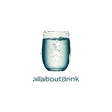Cats can drink sparkling water in very small amounts, but it’s not recommended. The carbonation can cause bloating, gas, and digestive discomfort, especially in sensitive cats.
Always choose plain, still water as the safest option for hydration. If your cat seems curious about bubbles, a cat water fountain is a better and healthier alternative.
Introduction
Ever caught your cat staring curiously at your fizzy drink and wondered, “Can cats drink sparkling water?” It’s a fair question — after all, cats are naturally drawn to moving liquids and bubbles. But before you let your feline take a sip, it’s important to understand how carbonation affects them. Sparkling water may look harmless, yet those tiny bubbles and possible additives can cause more harm than good. In this guide, we’ll explore whether cats can have sparkling water safely, what the real risks are, and how to keep your pet properly hydrated with healthier alternatives.
What Is Sparkling Water?
Before answering “Can cats drink sparkling water?” let’s understand what it actually is. Sparkling water, also known as carbonated or fizzy water, is plain water infused with carbon dioxide gas (CO₂) under pressure. This process creates the signature bubbles many people enjoy. Some varieties are completely unflavoured, while others may include minerals, sweeteners, or fruit flavoring. For cats, these added ingredients can be harmful, and even pure carbonation might upset their digestive system. While a few tiny sips of unflavoured sparkling water aren’t usually toxic, it’s still not ideal for feline hydration. Cats do best with plain, fresh water — the safest and most natural choice for their delicate systems.
Is Sparkling Water Safe for Cats?
So, can cats drink sparkling water safely? Most veterinarians say it’s best to avoid it. While a small sip of plain, unflavoured sparkling water won’t harm your cat, the carbonation can cause gas, bloating, or mild digestive upset. Cats have sensitive stomachs, and the fizz from carbonated drinks may leave them uncomfortable. Another concern is that some sparkling waters contain additives or artificial flavors, which can be harmful or even toxic to pets. Although it’s not classified as dangerous, there’s really no benefit to giving your cat fizzy water. For proper hydration and urinary health, stick to fresh, still water—it’s the safest and most effective way to keep your cat healthy.

Potential Risks & Side Effects
While sparkling water isn’t toxic to cats, it can still cause several unwanted reactions. The carbonation in fizzy water often leads to bloating, burping, or stomach discomfort, especially in cats with sensitive digestion. Some sparkling waters also contain sodium, minerals, or artificial flavors, which can irritate the stomach or strain the kidneys. Regularly offering carbonated drinks may also reduce your cat’s desire to drink plain water, increasing the risk of dehydration or urinary problems. In short, while a few sips might not hurt, making sparkling water a habit can upset your cat’s digestive balance and overall hydration levels. Stick to fresh, still water for long-term health.
When (If Ever) It’s Okay to Offer Sparkling Water
If you’re still wondering, “Can cats drink sparkling water occasionally?” the answer is yes — but only in tiny amounts and not as a habit. A few laps of plain, unflavoured sparkling water are generally harmless, provided it contains no additives, sodium, or sweeteners. Always observe your cat afterward for bloating or stomach upset. If they show any discomfort, avoid offering it again. For cats intrigued by bubbles, try a cat water fountain instead. It mimics the movement of fizzy water without the carbonation or digestive side effects.

Healthier Alternatives for Cat Hydration
| Water Type | Is It Safe? | Benefits | Potential Concerns | Expert Tip |
|---|---|---|---|---|
| Plain filtered water | Yes | Best for daily hydration; supports kidney and urinary health | None | Always provide fresh, clean water daily |
| Bottled mineral water | Generally | Contains natural minerals beneficial in moderation | Avoid high-sodium varieties | Check mineral content on labels |
| Sparkling (carbonated) water | Occasionally | Harmless in tiny amounts if unflavoured | Causes bloating or digestive upset | Not recommended regularly |
| Flavored or sweetened water | No | None | Additives and sweeteners can be toxic | Never give flavored drinks to cats |
| Cat water fountain | Yes | Encourages more drinking through movement | Requires cleaning and maintenance | Ideal for cats who dislike still water |
Vet Recommendations & When to Avoid Sparkling Water
Veterinarians generally advise against giving cats sparkling water. While it’s not toxic, the carbonation can lead to digestive upset and reduce normal water intake. Cats with sensitive stomachs, urinary tract issues, or kidney problems should never be offered carbonated drinks. Experts emphasize that cats thrive on plain, still water—freshly changed and easily accessible. If your cat accidentally drinks sparkling water, there’s no need to panic, but watch for signs of bloating or vomiting. For safe hydration, follow your vet’s guidance and keep things simple: clean, unflavoured water only.
FAQs About Cats and Sparkling Water
. Can cats drink sparkling water safely?
A few small sips of plain, unflavoured sparkling water won’t harm most cats. However, it shouldn’t replace regular, still water, which is vital for proper hydration and kidney health.
2. Is sparkling water toxic to cats?
No, sparkling water isn’t toxic. But the carbonation can cause bloating, burping, or mild stomach upset, especially in sensitive cats.
3. What if my cat likes the bubbles?
If your cat enjoys the fizz, try a cat water fountain instead. It offers similar movement without the carbon dioxide or digestive discomfort.
4. Can kittens drink sparkling water?
Kittens should never have sparkling or mineral water. Their digestive systems are too delicate, and only plain water supports proper growth.
5. How can I encourage my cat to drink more water?
Use multiple water bowls, offer wet food, or try a pet fountain to boost hydration. These small steps help prevent urinary issues and dehydration.





